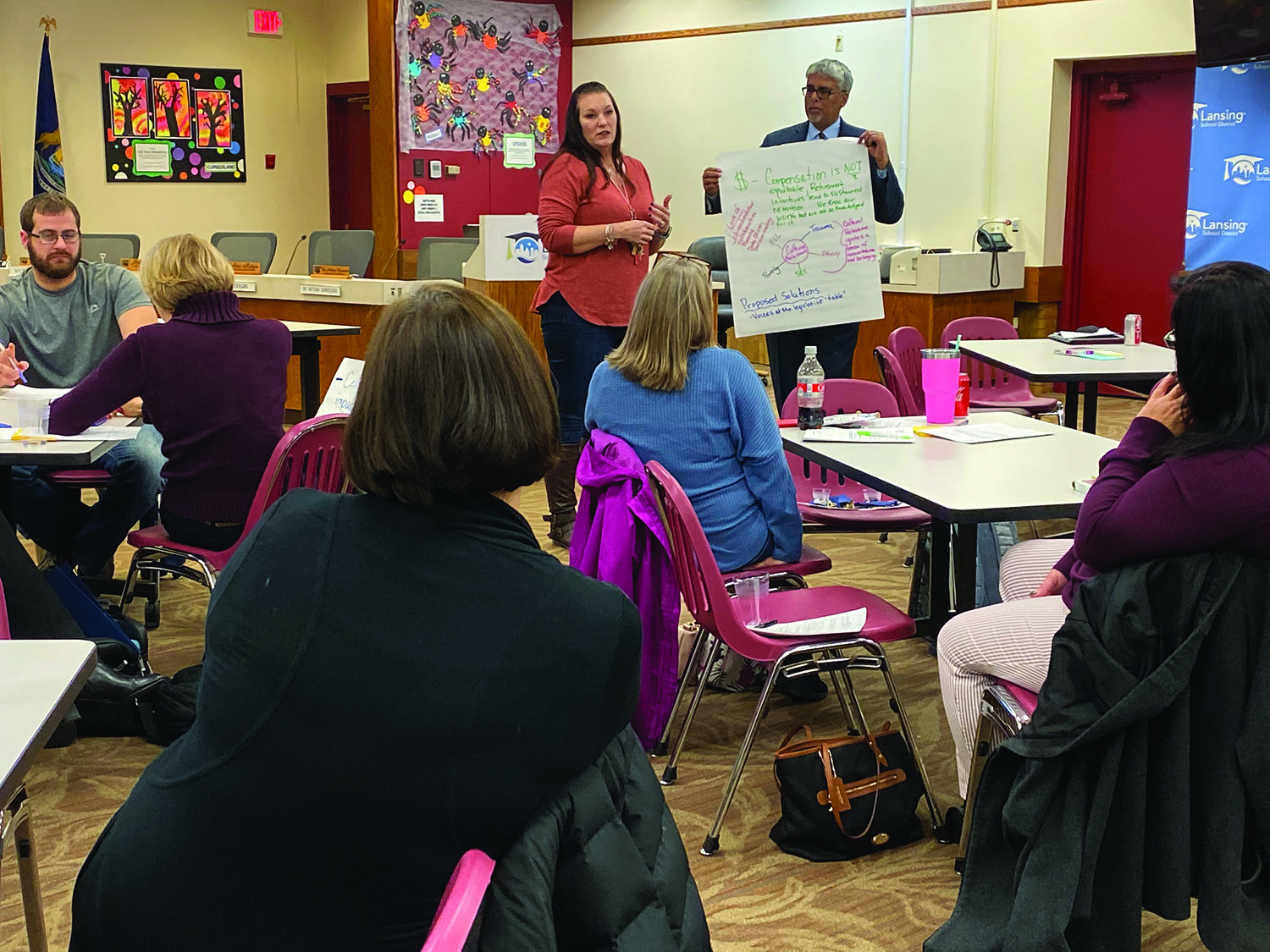How Do We Solve Educator Shortages?
If you put a bunch of educators in a room and ask them to solve what ails public education these days, you might expect they would produce a pretty darn amazing set of recommendations.

Expectation confirmed.
Over several weeks this fall, MEA, AFT Michigan, and the Middle Cities Education Association partnered with Public Policy Associates to convene several Educator Workforce Solutions
Summits to bring school employees’ voices into the conversation about how to recruit and retain educators.
Five in-person focus groups of educators and administrators around the state, plus one online panel, discussed ways to address shortages among teachers, paraeducators, bus drivers, and other educators as a blueprint for policymakers.
Adequate and equitable funding. Improved pay and benefits. Student loan debt relief. Teacher evaluation system improvements. More support staff. More mental health services. Better pre-service training and ongoing quality professional development.
Their ideas ran the gamut.
Less standardized testing, more creativity. Time in the day to collaborate. Paid teacher mentoring. Apprenticeships for student teachers. Minority recruitment and “grow your own” teacher development pipelines. Less hoop jumping. More autonomy.
The focus groups grew out of a statewide survey of 17,000 Michigan educators conducted in early 2019 for Launch Michigan, a coalition of leaders in business, education and philanthropy developing policy recommendations for the Legislature. MEA President Paula Herbart is a co-chair of the group.
Stay tuned—a full report from the Educator Workforce Solutions Summit is expected in early 2020.



